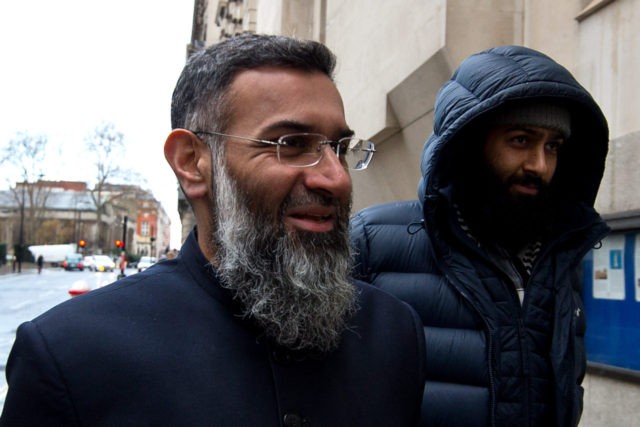Nearly half of all those deemed to be at risk of becoming radicalised by Islamic State are refusing to take part in the government’s flagship de-radicalisation program, new figures have revealed. MPs are calling for participation to be made mandatory to prevent more drifting into extremism
A Freedom of Information Act request from the BBC’s World At One programme found that, during the last financial year, of the 245 people referred to the government’s ‘Channel’ de-radicalisation program where “Islamic State” was flagged as the type of extremism they were exposed to, just 117 took up the offer of intervention, the Daily Mail has reported.
Channel is a voluntary program which pairs those deemed to be at risk of radicalisation with mentors who encourage them to turn away from extremist ideologies.
Khalid Mahmood, the Labour MP for Birmingham Perry Bar, where a number of schools were taken over by Islamist Muslims in the Trojan Horse scandal, called for the Channel programme to be made compulsory – providing problems with it could be ironed out.
He told the World At One that “the whole strategy needs to be looked at,” warning that some mentors are “non-violent radicalisers” who are “reinforcing the ideology” rather than countering it.
He added: “Also what needs to be looked at is the fact that the number of Channel providers is very stagnant, there is hardly any change in providers that the local police authorities use.
“So you have got a group of people who rarely change – there is no competition, there is no understanding of doing something differently in terms of providing Channel, and that is why it has not been as successful as it should be.
“I think it should become mandatory… but unless you have the right providers, unless you have people who are actually not going to reinforce that ideology, people who are actually trying to move people away from that ideology and the ethos of what they are being taught – that is the only way you will move forward and try to de-radicalise some of these people. And we are not doing that at the moment in Channel.”
He also called for more resources to be made available to the scheme.
However, a Home Office spokesman insisted that Channel was just one of a number of counter-terrorism measures at the disposal of British authorities, saying: “We have a wide range of powers at our disposal to prevent terrorist-related activity and our police and security and intelligence agencies work tirelessly, often unseen, to protect us.”
He said that the police were able to deal with any radicalised person who carried on along the path to extremism.
“Channel is a voluntary, confidential process to help protect vulnerable people from the poisonous and pernicious influence of extremist ideas that are used to legitimise terrorism.
“Since 2012, over 1,000 people have been successfully provided with support. This means people most at risk can be diverted away from potential criminal activity or extreme danger.
“This is similar to the way in which individuals at risk from involvement in crime, drugs and other social issues are supported.
“If an individual chooses not to take part in the programme, engagement continues and where appropriate support will be offered through alternative measures and other mainstream services. Any risk that an individual poses is carefully managed by the police.”
Many of those referred to Channel are children, as the program aims to intervene in radicalisation early on in the process.
A spokeswoman for the NPCC said: “Channel is just one of a range of intervention options open to police and partners.
“Where a person does refuse to participate in Channel – and of course, as a voluntary programme, this is their right – there will be continuing engagement with the individual concerned to seek alternative support measures.
“It should also be remembered that if anyone who has accepted or refused help goes on to become a national security threat, or commits an offence, they would be subject to a criminal investigation.”

COMMENTS
Please let us know if you're having issues with commenting.